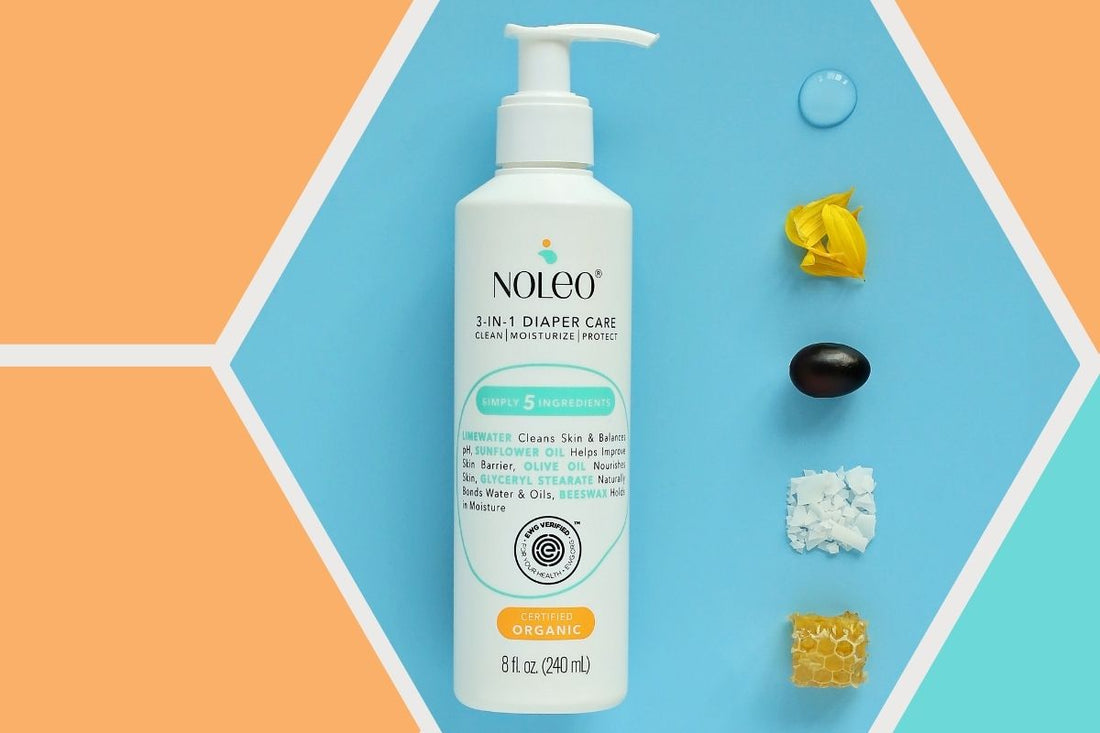
Which Ingredients Disrupt a Baby's Skin Microbiome?
Share
Many researchers agree that the skin microbiome, a complex and diverse environment of microorganisms on the skin’s surface, plays a key role in keeping our skin healthy — and the same goes for little ones. When babies are born and brought out of the sterile womb, their skin microbiota immediately begins to develop as they are exposed to their environment.
The study of the skin microbiome is a relatively new field, with much more research needed to fully grasp how it works and what we can do to maintain healthy microbiota. Even so, experts have come to several key conclusions, one being that too much interference with the microbiome can cause an imbalance. This imbalance can cause irritation and dryness in the short-term and weakened immune responses in the long-term.
Less is more
As of now, researchers haven’t put together a conclusive list of ingredients that are safe for the skin microbiome. However, a good rule of thumb is that less is more. Gentle skin care products with minimal formulations are the best way to preserve your baby’s skin microbiota. Irritating ingredients like fragrance, parabens, sulfates, and phenoxyethanol disrupt the skin microbiome. However, all ingredients have the ability to make some kind of impact. With that being said, gentle ingredients (and less of them) are your best bet when trying to preserve your little one’s microbiome and keep their skin healthy. But for those curious about which ingredients disrupt the microbiome’s balance the most, here are the buzzwords to avoid at all costs.
Alcohol
Alcohol can’t tell the difference between good bacteria and bad. Using alcohol on your skin, especially on sensitive baby skin, will kill off a good amount of the beneficial bacteria that the microbiome needs to function. This can lead to dryness, irritation, redness, and a disturbance of the delicate balance of microbiota on the skin’s surface. Consistent use of products with alcohol may also interfere with the skin’s pH levels. When it comes to products that you apply daily to your little one’s skin, including lotions, wipes, and diaper rash creams, choose products that are safe for regular use. For example, our Diaper Cleanser and Moisturizer only contains 5 simple ingredients and never any alcohol. It balances the skin’s pH and helps restore its natural barrier, keeping your baby’s skin healthy and happy.
Antibacterial ingredients
The same principles for alcohol apply to antibacterial ingredients — they kill off all bacteria, not just the bad kind. Beyond that, the FDA has actually banned certain antibacterial ingredients from being used in soaps, including triclosan, triclocarban, and nearly 20 others. They now advise using regular soap and water, not antibacterial soap. This goes to show that many antibacterial chemicals not only disturb the skin microbiome, but could lead to other ailments and unhealthy side effects. As for sensitive baby skin that’s still developing, you should avoid using antibacterial products altogether.
Antibiotics
Whether used internally or externally, antibiotics also can’t tell the difference between good and bad bacteria. While antibiotics are often used to treat infections, they also have the power to disrupt the skin microbiome. When a baby takes antibiotics, the medication kills the good bacteria that keeps yeast growth in check, which can result in diaper rash. The same goes for mothers that take antibiotics while breastfeeding — the risk of diaper rash rises. This just goes to show how one simple change can significantly impact the delicate balance of bacteria in the skin and the body. When you or your baby takes antibiotics, be sure to monitor their diaper areas for changes and use a Diaper Cleanser and Moisturizer to gently clean the area, prevent diaper rash, and treat any existing rashes.
Takeaway
Though the study of the skin microbiome is still developing, researchers have gathered some knowledge as to what affects the balance of our microbiota. Alcohol, antibacterial chemicals, and antibiotics may have the biggest impact on the microbiome. Even so, high amounts of ingredients and unnatural additives are also indicators that a baby care product may not be microbiome friendly. NOLEO 3-in-1 Cleanser, Moisturizer, and Diaper Rash Treatment is certified microbiome friendly by MyMicrobiome. When tested, it was found that NOLEO 3-in-1 did not significantly disrupt the skin’s microbiome and effectively preserved the existing good bacteria on the skin.
